This article was co-authored by Jennifer Kaifesh. Jennifer Kaifesh is the Founder of Great Expectations College Prep, a tutoring and counseling service based in Southern California. Jennifer has over 15 years of experience managing and facilitating academic tutoring and standardized test prep as it relates to the college application process. She takes a personal approach to her tutoring, and focuses on working with students to find their specific mix of pursuits that they both enjoy and excel at. She is a graduate of Northwestern University.
There are 14 references cited in this article, which can be found at the bottom of the page.
This article has been viewed 227,241 times.
Studying is hard work, and all that work often makes you tired! Sometimes, studying through your fatigue is part of the road to success and getting good grades in school. Fortunately, there are things you can do to help increase your energy and focus.
Here are 16 tricks to help you stay awake while you’re studying.
Steps
Expert Q&A
-
QuestionHow do I enjoy studying?
 Jennifer KaifeshJennifer Kaifesh is the Founder of Great Expectations College Prep, a tutoring and counseling service based in Southern California. Jennifer has over 15 years of experience managing and facilitating academic tutoring and standardized test prep as it relates to the college application process. She takes a personal approach to her tutoring, and focuses on working with students to find their specific mix of pursuits that they both enjoy and excel at. She is a graduate of Northwestern University.
Jennifer KaifeshJennifer Kaifesh is the Founder of Great Expectations College Prep, a tutoring and counseling service based in Southern California. Jennifer has over 15 years of experience managing and facilitating academic tutoring and standardized test prep as it relates to the college application process. She takes a personal approach to her tutoring, and focuses on working with students to find their specific mix of pursuits that they both enjoy and excel at. She is a graduate of Northwestern University.
Founder, Great Expectations College Prep You can also use healthy snacks as motivation for studying. For example, reward yourself with a snack after staying awake and studying for 30 minutes.
You can also use healthy snacks as motivation for studying. For example, reward yourself with a snack after staying awake and studying for 30 minutes. -
QuestionHow long is it recommended to study without breaks?
 Community AnswerYou should take a 5-10 minute break every 45 minutes to an hour. Try to notice when your attention starts to wane and you should be able to develop a system that makes sense for you.
Community AnswerYou should take a 5-10 minute break every 45 minutes to an hour. Try to notice when your attention starts to wane and you should be able to develop a system that makes sense for you. -
QuestionWhat can I do, when I don't have the substance you mentioned like, caffeine and mint gum, because I am in a boarding school?
 Raphy HongCommunity AnswerYou can use other types of ways to help you stay awake, like study groups, music, or exercising. And wash your face with cold water when your eyes start to shut, drink cold water and suck ice cubes. Apples can help you to stay awake too.
Raphy HongCommunity AnswerYou can use other types of ways to help you stay awake, like study groups, music, or exercising. And wash your face with cold water when your eyes start to shut, drink cold water and suck ice cubes. Apples can help you to stay awake too.
References
- ↑ http://lsw-international.com/how-to-stay-awake-alert-while-studying-without-coffee/
- ↑ https://www.opencolleges.edu.au/informed/features/how-does-the-brain-learn-best-10-smart-studying-strategies/
- ↑ https://www.aiuniv.edu/blog/2016/may/stay-energized-for-late-night-studying
- ↑ https://success.oregonstate.edu/learning/ready-set-concentrate
- ↑ https://www.fastcompany.com/3022942/the-surprising-science-behind-what-music-does-to-our-brains
- ↑ https://www.indiatoday.in/education-today/featurephilia/story/how-to-stop-falling-asleep-while-studying-17-tips-to-keep-you-awake-for-board-exam-preparation-1648066-2020-02-19
- ↑ https://sites.psu.edu/siowfa15/2015/09/17/does-chewing-gum-while-studying-help-you-remember/
- ↑ https://www.aiuniv.edu/blog/2016/may/stay-energized-for-late-night-studying
- ↑ https://www.indiatoday.in/education-today/featurephilia/story/how-to-stop-falling-asleep-while-studying-17-tips-to-keep-you-awake-for-board-exam-preparation-1648066-2020-02-19
- ↑ https://www.cc-sd.edu/blog/is-caffeine-affecting-your-study-habits
- ↑ https://www.cnn.com/2017/04/26/health/energy-drinks-health-concerns-explainer/index.html
- ↑ https://learningcommons.ubc.ca/the-pomodoro-technique-study-more-efficiently-take-more-breaks/
- ↑ https://www.nbcnews.com/better/health/how-take-nap-will-actually-boost-your-energy-ncna793681
- ↑ https://www.auamed.org/blog/12-ways-exercise-study/
- ↑ https://news.fiu.edu/2013/12/8-study-tips-that-will-help-you-overcome-finals-week/70573
- ↑ https://www.rasmussen.edu/student-experience/college-life/how-to-organize-use-study-groups/
- ↑ https://www.indiatoday.in/education-today/featurephilia/story/how-to-stop-falling-asleep-while-studying-17-tips-to-keep-you-awake-for-board-exam-preparation-1648066-2020-02-19
About This Article
To stay awake while studying, chew some gum since it will increase blood flow to your brain and give you a boost of energy. If you’re snacking while studying, eat high-protein foods that provide lasting energy like trail mix, beef jerky, or string cheese rather than sugary foods that will make you crash. Since staying hydrated can help you fight off tiredness, drink at least 8 ounces of water every 1 to 2 hours. Exercise is another great way to get reenergized, so take a break and go for a short walk to wake up your muscles and get your blood flowing. If possible, walk outside since fresh air is a great energy booster. When choosing where to study, pick somewhere with lots of lighting so you don’t get drowsy working in a dim room. For more tips, including how to study in intervals to stay alert, read on!


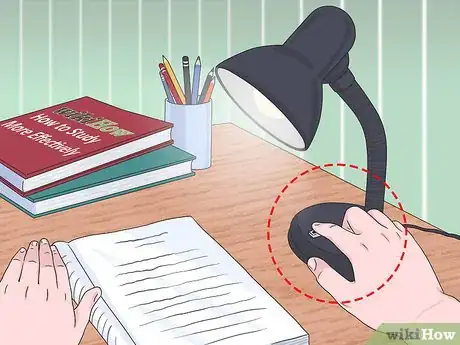



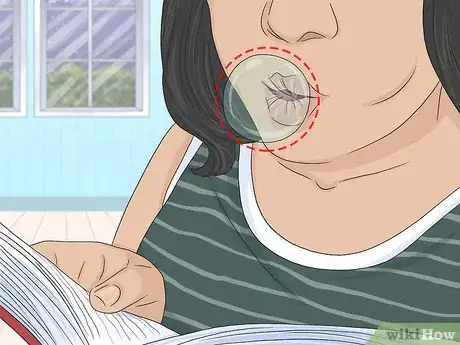





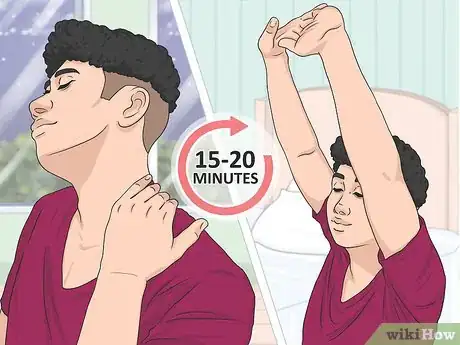
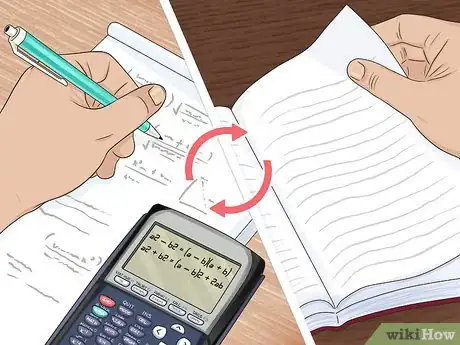


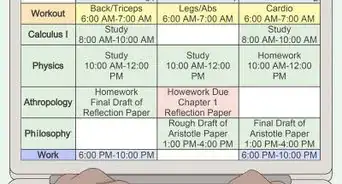





















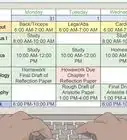






































Medical Disclaimer
The content of this article is not intended to be a substitute for professional medical advice, examination, diagnosis, or treatment. You should always contact your doctor or other qualified healthcare professional before starting, changing, or stopping any kind of health treatment.
Read More...